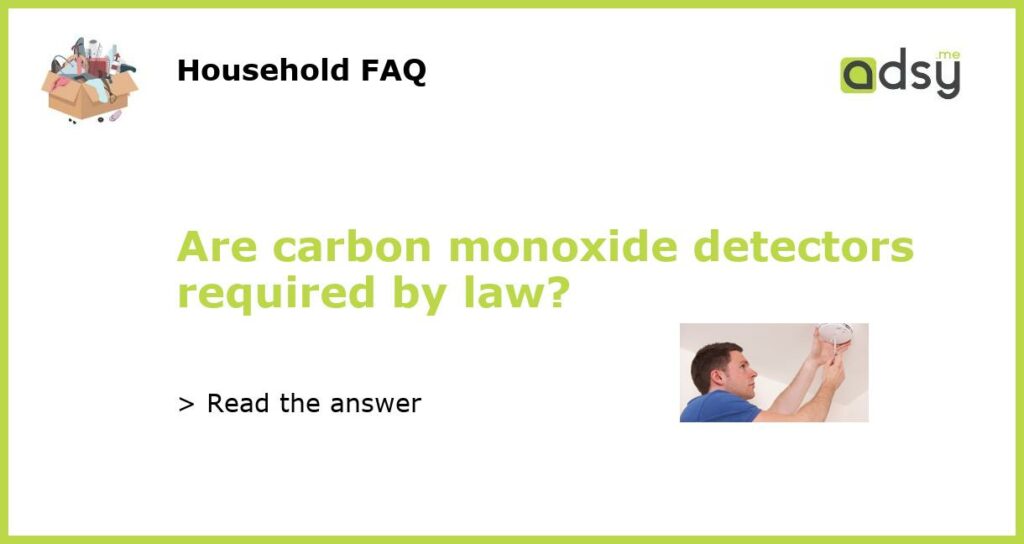Yes, carbon monoxide detectors are required by law in many jurisdictions.
Carbon monoxide (CO) is an odorless, colorless gas that can be deadly if inhaled in high concentrations. It is produced by the incomplete combustion of fossil fuels, such as natural gas, oil, and coal. Since CO is impossible to detect without specialized equipment, carbon monoxide detectors play a vital role in protecting people from this silent killer.
Understanding the legal requirements for carbon monoxide detectors
The laws regarding carbon monoxide detectors vary by country, state, and city. In many jurisdictions, it is mandatory to install CO detectors in residential properties, commercial buildings, and certain types of vehicles. The specific requirements may differ, so it is important to research the regulations in your particular area.
Residential requirements for carbon monoxide detectors
In the United States, many states and municipalities have enacted laws that require the installation of carbon monoxide detectors in residential properties. These laws typically apply to new constructions and renovations, as well as existing homes. In some states, such as California and Oregon, the laws specify the locations where detectors must be installed, such as near sleeping areas.
Canada also has regulations in place regarding carbon monoxide detectors. The exact requirements vary by province, but most jurisdictions mandate the installation of CO detectors in residential properties.
Commercial requirements for carbon monoxide detectors
Commercial buildings are often subject to carbon monoxide detector requirements as well. In many jurisdictions, including the United States and Canada, building codes and occupational health and safety regulations stipulate the installation of CO detectors in commercial and industrial premises. These regulations are in place to protect employees, customers, and the general public from the dangers of carbon monoxide exposure.
Vehicle requirements for carbon monoxide detectors
In addition to buildings, certain types of vehicles may be required to have carbon monoxide detectors. For example, in the United States, federal regulations mandate the installation of CO detectors in recreational vehicles (RVs) and boats with enclosed accommodation spaces. This requirement helps to ensure the safety of occupants who may be exposed to CO emissions from generators, engines, or other sources.
Penalties for non-compliance with carbon monoxide detector laws
The penalties for non-compliance with carbon monoxide detector laws can vary depending on the jurisdiction. In some cases, property owners may face fines or be subject to legal action if they fail to install the required detectors. Non-compliance can also lead to increased liability in the event of a CO-related incident.
It is important for property owners and occupants to familiarize themselves with the laws and regulations governing carbon monoxide detectors in their area. By ensuring compliance and regularly testing and maintaining these devices, individuals can help protect themselves and their loved ones from the dangers of carbon monoxide poisoning.

